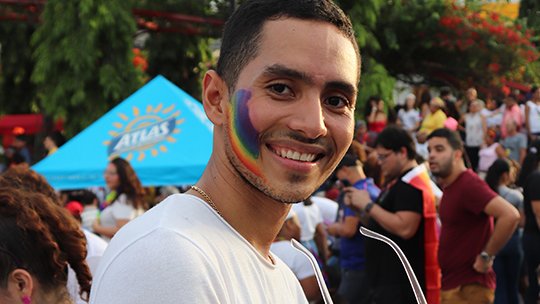Creating Safe Spaces for L.A.’s LGBTQ+ Youth
Queer and gender non-conforming youth face alarming rates of bullying, loneliness, and isolation putting them at increased risk for depression and other mental health conditions. Local LGBTQ-led nonprofit, Rainbow Labs, is working to change that.
Co-founded in 2020 by Jacob Toups and Luis Vasquez, Rainbow Labs has become a safe haven for queer and gender non-conforming youth facing bullying and lacking supportive environments in their communities. Through their mentorship program, Rainbow Labs has been able to create a space for queer youth to feel safe and seen.
In their recent Mental Health Action Day event, the organization brought together youth development professionals working with and alongside LGBTQ+ youth and other stakeholders for a panel discussion and light training on how to support LGBTQ+ youth and their mental health needs.
Referencing the new U.S. Surgeon General’s Advisory, which calls attention to the nation’s epidemic of loneliness, the event focused on recognizing the healing effects of connection and exploring the many ways in which we can better address the needs of LGBTQ+ youth. Liberty Hill’s OUT Fund Giving Circle member Paul Moore was among the three panelists that participated in the event.
In his remarks, Paul highlighted the important role that the philanthropic community plays in supporting organizations that serve and empower local queer youth.
Paul shared, “What I love about The OUT Fund Giving Circle at Liberty Hill is the ability to provide funding to smaller LGBTQ+ organizations that often struggle to secure traditional foundation support.” He continued, “By offering support to these grassroots entities, we not only assist in their growth, but we also serve as a valuable catalyst and endorsement that can enable them to secure additional funding opportunities resulting in a thriving LGBTQ+ community and ecosystem.”
Through funding initiatives—like those spearheaded by Liberty Hill’s OUT Fund—community-based organizations are able to build up their infrastructure and better support underserved and marginalized communities. The support comes at a time in which queer and gender non-conforming youth need it the most.
